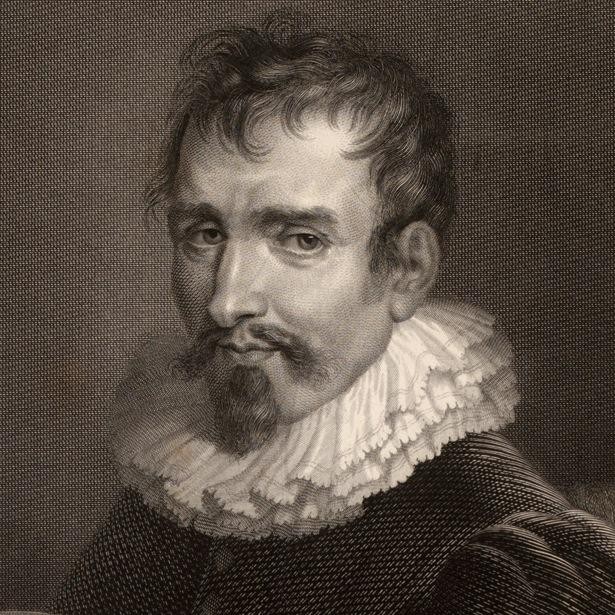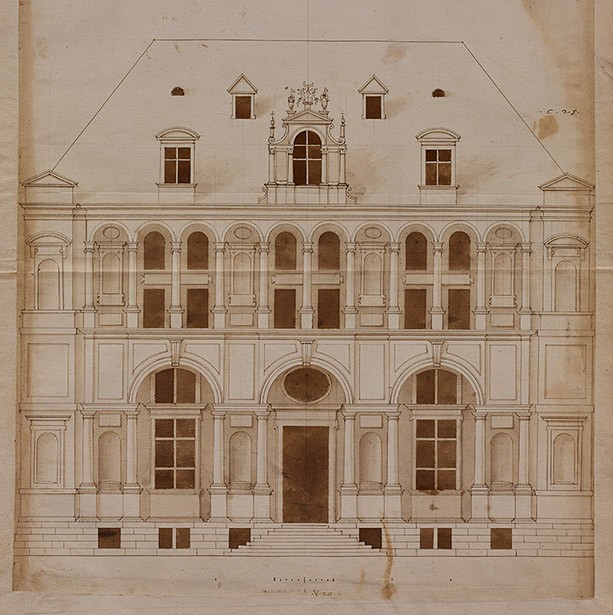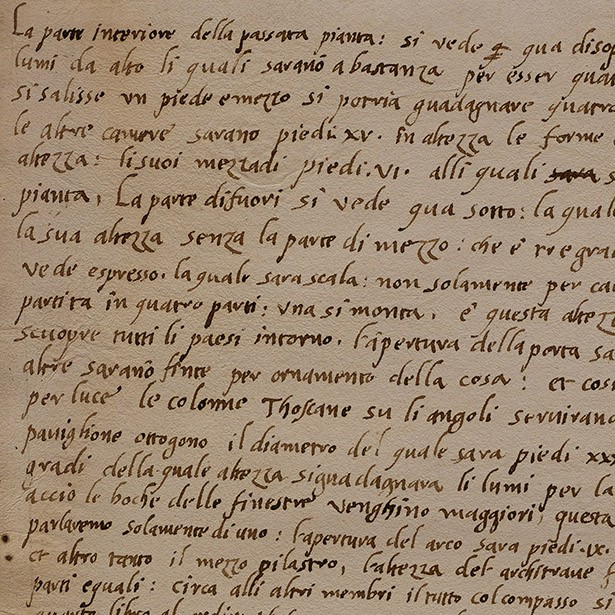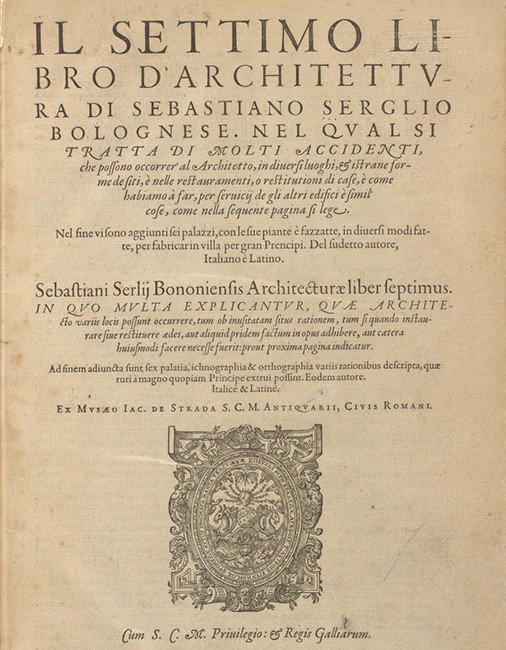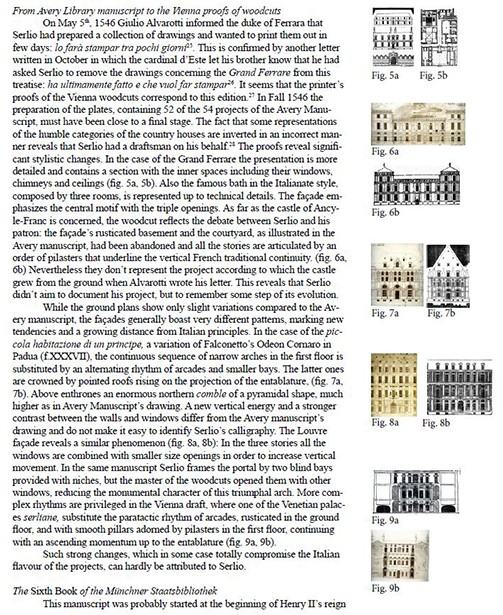Digital Serlio Project

The Digital Serlio Project presents Avery Architectural & Fine Arts Library's unparalleled holdings of the works of Sebastiano Serlio including his published works in multiple editions, and the manuscript for his unpublished masterwork, On Domestic Architecture. The Project seeks to facilitate active use of the collection in curricular and research activities and to promote new scholarship. The Digital Serlio Project brings current research on Serlio's works into direct conversation with digital captures of the works themselves.
A sixteenth-century Italian architect and theoretician, Sebastiano Serlio was influential in canonizing the classical orders of architecture as the author of seven books on architecture, collectively known as Tutte l'opere d'architettura, and for his formulation of the first typology of Western domestic architecture. The Digital Serlio Project leverages contemporary methodologies – including visual, textual and material analysis using high resolution digital images – to re-examine Avery’s Serlio corpus and the questions it foments on domestic architecture of the 16th century and Serlio’s socio-economic model for early modern European urbanism.
See also: Digital Serlio Symposium
Sebastiano Serlio (1475 - c. 1554) was influential in canonizing the classical orders of architecture as the author of seven books on architecture, collectively known as Tutte l'opere d'architettura. The Digital Serlio Project at Avery Architectural & Fine Arts Library presents Avery’s unparalleled holdings of the published works of Sebastiano Serlio and On Domestic Architecture (Tutte l'opere d'architettura, Libro VI) his unpublished manuscript also held in Avery's collection. The Project is also an effort to facilitate active use of the collection in curricular and research activities, and to promote new scholarship. Throughout its history, Avery has worked to acquire printed editions of Serlio’s works.
For the convenience of scholars, Avery has aggregated descriptions of and links to digital versions of all extant manuscripts by Sebastiano Serlio, beginning with Avery’s own manuscript for Serlio’s sixth book. In each instance, we have clearly indicated the holding institution and links will take the viewer to external sites maintained by each repository.
William Bell Dinsmoor served as the third Librarian of the Avery Architectural and Fine Arts Library in the 1920s and was responsible for the purchase of Serlio’s unpublished manuscript for the sixth book. In 1933, the School of Architecture paid a Mme. Piccirilli for a first draft of the translation of Avery’s Serlio manuscript, and although she was not an architectural historian, her translation gives us an interesting lens through which to understand the peculiarities of Serlio’s language.
Avery Library possesses one of the largest collections of early published editions of Serlio’s works. These volumes range from first editions of the Quarto Libro on architectural orders – the fourth book in the sequence but the first to be published in 1537 – to the first Spanish and English translations of Serlio’s work, published in 1573 and 1611 respectively.
These volumes are described and made available via Avery's Published Editions page, and the entire corpus can also be accessed through the Internet Archive linked to on the Published Editions page.
The Digital Serlio Project was co-directed by Professor Francesco Benelli and Carole Ann Fabian, former Director of Avery. Many researchers, scholars, and experts in the field contributed essays to the project, and information about them and their work as well as links to their essays are included in Digital Serlio: Scholars Essays.
The Digital Serlio Project is directed by the Avery Architectural & Fine Arts Library in collaboration with the Columbia University Libraries, Department of Art History & Archaeology, Graduate School of Architecture, Planning and Preservation (GSAPP), Graduate School of Arts & Sciences, and the Italian Academy (Columbia University); University of Bologna; and the Ecolé nationale des Chartes. Funding for research and scholarship is provided by grants from the Samuel Freeman Charitable Trust and the Sidney J. Weinberg, Jr. Foundation.
